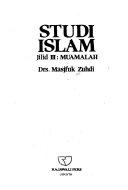A Metacritical Inquiry
The work of Alexander A. Potebnja, a leading Ukrainian linguist of the nineteenth century, has significantly influenced modern literary criticism, particularly Russian formalism and structuralism. Potebnja's theory, known as potebnjanstvo (Potebnjanism), flourished in the Russian Empire and in the Soviet Union during the 1920s. It attracted scores of adherents and gave rise to an influential literary journal and a formal critical school at Kharkiv. Yet despite his remarkable achievements in linguistics and literary theory, Potebnja's work was officially renounced in the Soviet Union in the 1930s, and in the West he remains virtually unknown. In his study, John Fizer carefully reconstructs Potebnja's theory of literature from the psycholinguistic formulations found in his works on language, mythology, and folklore. Elaborating Potebnja's concept of internal form, energeia, polysemy, and the semiosis of poetic discourse, Fizer develops the central tenets of Potebnja's theory with regard to their philosophical, psychological, and linguistic bases. Largely influenced by Kant and by Humboldt's philosophy of language, Potebnja conceived of language and the verbal arts as coterminous phenomena. He identified the internal form with the etymon of the word, which he considered the preeminent locus in the structure of poetic art. He insisted on the dynamic role of the Self in poetic creation and perception but, unlike many of his contemporaries, he believed that the diachronic depth of the signifiers was ethnic and had measureable limits. According to Potebnja, this depth (or internal form) reveals itself as a semantically multivalent image that induces self-knowledge and transforms the primary data of consciousness into syntagmatic wholes. A great deal of Potebnja's theory shares similarities with the work of Benedetto Croce, Leo Spitzer, and Charles S. Pierce. It anticipated modern literary criticism, and, as the author convincingly argues, retains existential and epistemological cogency even today. Fizer's volume offers the first thorough study of Potebnja's literary theory, and his insightful analysis restores Potebnja to his rightful place in the history of literary criticism.
The work of Alexander A. Potebnja, a leading Ukrainian linguist of the nineteenth century, has significantly influenced modern literary criticism, particularly Russian formalism and structuralism.









